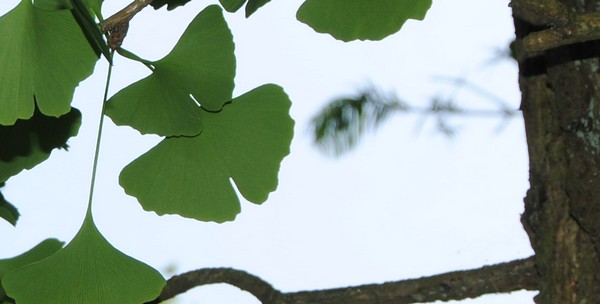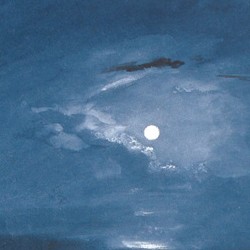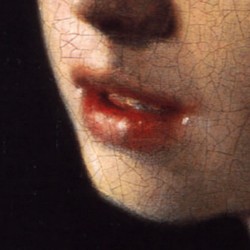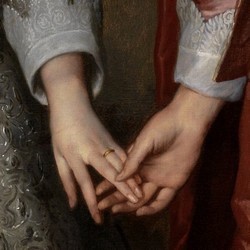
In 1774, in a city that probably was Linz, a child named Marianne was born; as the father was unknown, she took the surname of her mother, actress Elisabeth Pingruber. Four years later, the mother married Joseph Georg Jung and, although the man didn't adopt her, the child became also known as Marianne Jung. In 1798, after Herr Jung's death, mother and daughter moved to Frankfurt, where the girl, now a ballet dancer, captivated the audience; her admirers included Catharina Elisabeth Goethe, the mother of our Goethe, and Clemens Brentano, co-author of Des Knaben Wunderhorn.
She also captivated banker Johann Jakob von Willemer, who in 1800 came to a deal with Frau Jung. He compensated her with a significant amount of money and a life pension, sent her back to Linz and took the girl home; there, Marianne received, as a pupil, the same excellent education that the banker's daughters. As you can see, the story has points in common with that of a novel character we know well, Mignon, rescued from a rope-dancing company by Wilhelm Meister, who pays the master to set her free. Perhaps Marianne wasn't physically mistreated as Mignon, and we don't know more details about the deal between her mother and the banker, but the story is, at least, disturbing.
We met Marianne again in the summer of 1814, when he accompanied Willemer to visit his old friend Goethe, who has returned home after many years. The woman's charms attracted the poet's attention: she was attractive, intelligent, a good conversationalist, and sang and played piano and guitar very well. And soon after, in October, he visited the couple, who have just married. Let us put into context: Marianne was thirty, Willemer, fifty-four, and Goethe, sixty-five. The details of Goethe's (who was also married) and Marianne's relationship are not known, but there is little doubt that the woman became an important intellectual stimulus to him. The next summer, the poet spent six weeks with the Willemers and in September, shortly after he left them, Goethe and Marianne spent several days in Heidelberg. After that encounter, they never met again, I don't know why, but they maintained an intense epistolary relationship until Goethe's death in 1832; if you have an interest in these letters, they are published in German.
At the time when the couple first met, Goethe was working on his West-östlicher Divan, a collection of poems with which, under the influence of the Persian poet Hafis, he wanted to put together the best of Eastern and Western cultures. The poems, published in 1819, are divided into twelve books, the eighth of which is the Book of Suleika. It's the longest and tells the love story between the poet Hatem and a much younger woman, Suleika. The parallelism is clear, even more when we know that Suleika and Hatem were the names used by Marianne and Goethe in their correspondence.
The poems of this book immediately drew the attention of the composers; Zelter and Schubert composed the first Lieder and later came those of Felix and Fanny Mendelssohn, Schumann, Wolf, Strauss or Rihm. Today we're talking about Schubert's songs; last week, when I was writing about Brahms' Botschaft and the meaning of the East Wind in Eastern poetry, I realized that my post about Suleika I was just a mini post before I left for a holiday, and I thought that this week we would listen to Suleika II and I would talk more extensively about their story.
Schubert composed both Lieder in March 1821. As we saw last week, the East Wind, which appears in Suleika I, is the messenger of joy in the Eastern tradition, while the West wind, that of Suleika II, conveys concern. In the poem, entitled Suleikas Gesang an den Westwind, the young woman expresses her pain for the separation and wonders about the reunion, while she tries that Hatem doesn't know about her saddness. These mixed feelings are also felt in music, pay attention when you listen to our version, performed by Christine Oelze and Eric Schneider.
After Johann Jakob Willemer died in 1838, Marianne continued to gather intellectuals and artists, sharing with them her wisdom and also her memories of Goethe. The poet had died at eighty-three and Marianne was one of the few living people who could talk about him to his admirers and scholars of the new generations. One of these young men was Hermann Grimm, son of Wilhelm and nephew of Jakob, that is, the Brothers Grimm of the fairy tales; he was married to Gisela von Arnim, the daughter of Achim von Arnim, the other author of Des Knaben Wunderhorn, and Bettina Brentano, sister of Clemens. Sometimes, I really think that there were a dozen German families that interrelate with each other for decades.
But let's go back to our story. In 1857, Marianne von Willemer explained to Herman in a letter that she had written five of the poems of the Book of Suleika and Goethe had published them among his own work without saying a word. I don't thing he wanted to borrow them, he didn't need to do so; I rather think that it was a knowing gesture, an intimate token of respect and admiration: the verses of Marianne could be mixed with those of the great Goethe.
Grimm kept Marianne's secret and didn't reveal it until 1869, six years after her death, and the news seems to have passed almost unnoticed, despite referring to the most important figure in German literature. Maybe because the Divan had relatively success; two weeks ago I told you about a work by Redwitz that reached its eighth edition two years after it was published, while the first edition of the Divan was available during the First World War, that is, a century later. Eventually, the story became well known and widely studied, and it's nowadays accepted (not unanimously, according to what I read) that the two poems that Schubert thought were by Goethe, were actually by Marianne von Willemer. She gave to Goethe the first one, Suleika I, the day they met at Heidelberg; the second, Suleika II, might be written shortly after they left that city.
Ach, um deine feuchten Schwingen,
West, wie sehr ich dich beneide:
Denn du kannst ihm Kunde bringen
Was ich in der Trennung leide!
Die Bewegung deiner Flügel
Weckt im Busen stilles Sehnen;
Blumen, Auen, Wald und Hügel
Stehn bei deinem Hauch in Tränen.
Doch dein mildes sanftes Wehen
Kühlt die wunden Augenlider;
Ach, für Leid müsst’ ich vergehen,
Hofft’ ich nicht zu sehn ihn wieder.
Eile denn zu meinem Lieben,
Spreche sanft zu seinem Herzen;
Doch vermeid’ ihn zu betrüben
Und verbirg ihm meine Schmerzen.
Sag ihm, aber sag’s bescheiden:
Seine Liebe sei mein Leben,
Freudiges Gefühl von beiden
Wird mir seine Nähe geben.
Ah, your damp wings,
West Wind, how much I envy you them;
for you can bring him tidings
of what I suffer in our separation!
The movement of your wings
awakens in my breast a silent longing;
Flowers, meadows, forests and hills
stand in tears from your breath.
Yet your mild, gentle blowing
cools my aching eyelids;
ah, for sorrow I would die
if I could not hope to see him again.
Hurry then to my beloved -
speak softly to his heart;
but don't distress him,
and conceal my pain.
Tell him, but tell him modestly,
that his love is my life,
and that a joyous sense of both
will his presence give me.
(translated by Emily Ezust)















